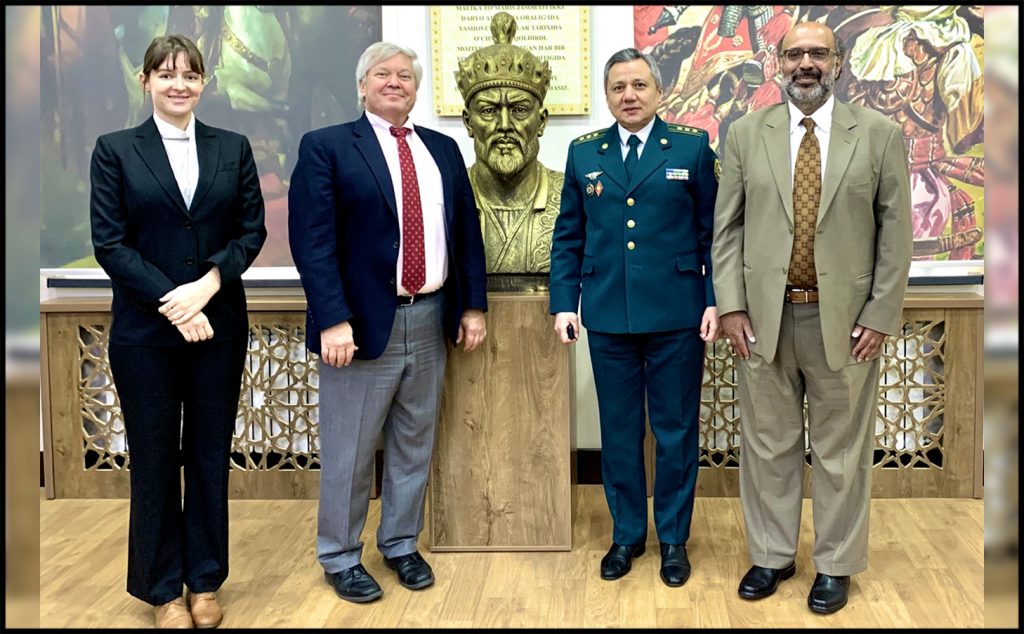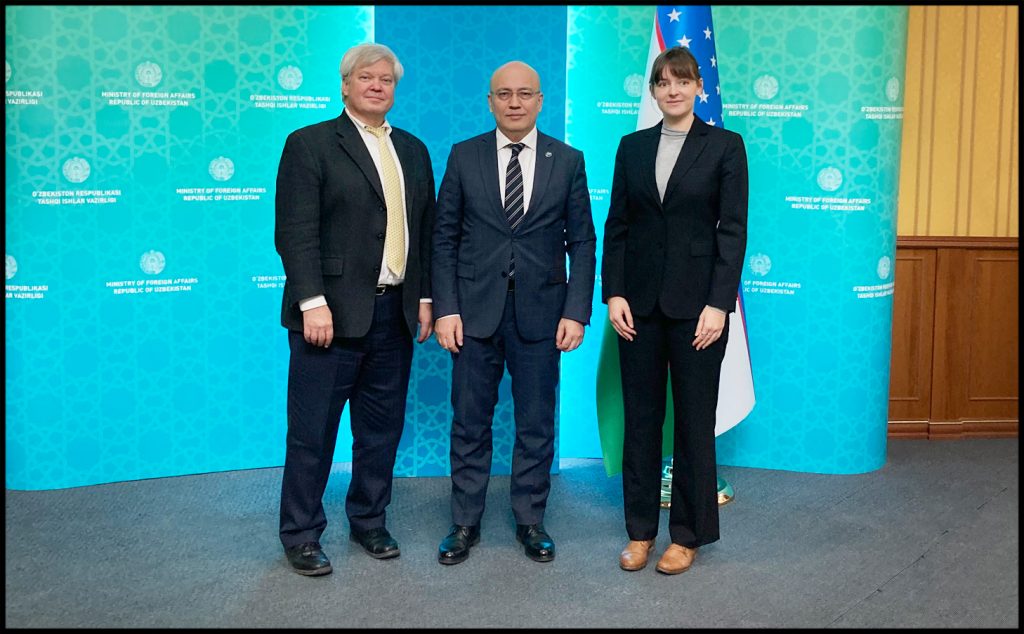Uzbekistan Group Meetings
December 20, 2022 2022-12-20 17:37Uzbekistan Group Meetings
From 12–16 December 2022, the NESA Center team of Dean Dr. Roger Kangas, Distinguished Professor Dr. Hassan Abbas, and Research Assistant Michelle Hanssen visited Tashkent, Uzbekistan to hold a series of meetings and visits that focused on reconnecting with Uzbek partners after the Covid-19 hiatus. With particular emphasis on the Strategic Studies Network Central Asia Working Group, this was a chance to exchange ideas on both thematic and organizational matters. The former tended to concentrate on the situation in Afghanistan, the Russian invasion of Ukraine, U.S. policy towards Central Asia, as well as reforms underway in Uzbekistan that offer more opportunities for U.S.-Uzbek cooperation. The latter focused on the way ahead – how and when the NESA Center can once again conduct programs in Uzbekistan (and in Central Asia, as a whole).

Official meetings included visits to the Ministry of Foreign Affairs, Armed Forces Academy of the Ministry of Defense of Uzbekistan, the Ministry of Interior Academy, the Institute of Strategic and Regional Studies, the independent think tank “Knowledge Caravan,” the University of World Economy and Diplomacy (to include its newly established research center), among others. The NESA team also met with officials from the U.S. Embassy, as well as held a small meeting of the Embassy’s Public Affairs Office outreach to U.S. government program alumni. In almost each meeting, NESA Center program alumni were present, affording a chance to reconnect with them.

This past week, the United States and Uzbekistan reaffirmed their Strategic Partnership Dialogue and both countries are keen to work on areas of mutual interest. There is a focus on person-to-person exchanges and programs, such as the return of the Peace Corps to Uzbekistan. The hope is that this atmosphere of cooperation will create conditions for the NESA Center to engage with its counterparts more fully in the Republic of Uzbekistan, especially with the educational institutes and strategic studies centers. The warm and positive reception to the visit of Kangas, Abbas, and Hanssen underscores that this will be the case for the NESA Center.







